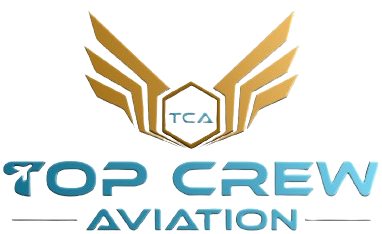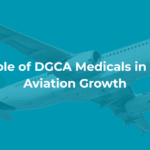
Becoming a pilot is a dream for many, but the very first step in this journey is not flying an aircraft — it is ensuring that you are medically fit for the skies. DGCA medicals play a crucial role in determining whether an aspiring pilot is physically and mentally capable of handling the challenges of aviation.
So, what are DGCA medicals? These are mandatory medical examinations conducted under the guidelines of the Directorate General of Civil Aviation (DGCA), India. They ensure that every pilot meets the strict DGCA medical standards before stepping into an aircraft cockpit.
The importance of medical fitness in aviation cannot be overstated. Flying involves high responsibility, complex decision-making, and physical endurance. A pilot with poor vision, unstable health, or undetected medical conditions can endanger not only themselves but also the safety of passengers.
That is why the pilot medical certificate is considered the gateway to the aviation world. Without it, you cannot begin your official pilot journey — whether you want to become a private pilot or build a full-fledged pilot career.
Why DGCA Medicals are Crucial for Aspiring Pilots
For every aspiring aviator, DGCA medicals are not just a formality — they are the foundation of a safe and sustainable flying career.- Ensuring Physical and Mental Fitness: Pilots need excellent vision, hearing, heart health, and mental stability to operate flights. The pilot medical exam ensures that no hidden condition threatens aviation safety.
- Legal Requirement for Pilot Training and License: The DGCA has made medical requirements for pilots compulsory. Without clearing these medicals, no flight school will admit you for training.
- Impact on Career Progression in Aviation: A pilot’s career depends on continuous medical clearance. Without a valid DGCA medical certificate, one cannot continue flying or upgrade licenses.
Types of DGCA Medical Certificates
The DGCA issues two main categories of medical certificates depending on the stage of your pilot journey: DGCA Class 2 Medical- This is the starting point for all student pilots. If you wish to join a flying school, you must clear the Class 2 medical. It is relatively less strict compared to Class 1 and is valid for student pilot licenses and private pilot licenses.
- For anyone aiming to become a commercial pilot, clearing the DGCA Class 1 Medical is essential. It has stricter standards related to vision, cardiovascular fitness, neurological health, and more.
- Class 2 is required at the beginning of your training.
- Class 1 is mandatory before starting commercial pilot training and flying as a professional.
Eligibility Criteria for DGCA Medicals
Before you apply for your medical examination, it’s important to know the basic DGCA medical requirements:- Age: You can apply for a Class 2 medical as soon as you are 16 years old. For Class 1 medical, the minimum age is 17 years.
- Vision: Candidates must have good eyesight (with or without correction). Certain severe eye conditions can disqualify a candidate.
- Hearing: Clear hearing is essential to understand radio communication.
- General Health: No major cardiovascular, neurological, or psychiatric conditions.
- Other Conditions: Diabetes, uncontrolled blood pressure, or certain medications may disqualify applicants.
Step-by-Step Process to Obtain a DGCA Medical
Here’s the detailed DGCA medical exam process for aspiring pilots:- Choose a DGCA-Approved Medical Examiner: Check the official DGCA medical examiner list and book an appointment.
- Prepare Required Documents: Carry identity proof, educational certificates, and previous medical reports (if any).
- Medical Examination:
- Vision and hearing tests
- Blood and urine analysis
- ECG and cardiovascular check-up
- Lung function test
- Neurological assessment
- Issuance of Medical Certificate: Once cleared, you will be issued your pilot medical certificate, which mentions the DGCA medical certificate validity.
Common Blood Tests and Physical Examinations
The DGCA conducts multiple tests to ensure your health meets aviation medical standards:- Blood Tests: Hemoglobin, blood sugar, cholesterol, liver function, kidney function, and in some cases, hormones like Testosterone and FSH.
- Vision Tests: Eyesight, color blindness checks, and depth perception.
- Hearing Tests: Audiometry to ensure you can clearly understand radio calls.
- Cardiovascular Tests: ECG and blood pressure checks.
- Other Examinations: Neurological, dental, and general physical check-up.
Tips to Prepare for Your DGCA Medical
Aspiring pilots often worry about clearing the medicals, but with proper preparation, you can easily qualify:- Maintain a Healthy Lifestyle: Eat balanced meals, stay hydrated, and exercise regularly.
- Sleep Well: Adequate sleep before the test ensures accurate results.
- Avoid Disqualifying Habits: Smoking, excessive alcohol, and unapproved medications can affect test results.
- Regular Check-ups: Get periodic health tests before applying for the DGCA medical renewal process.
Costs and Duration
The cost of DGCA medicals can vary depending on the examiner and the hospital. On average:- Class 2 Medical: ₹2,000 – ₹4,000
- Class 1 Medical: ₹5,000 – ₹7,000 (may be higher in metro cities)
- Class 2 is valid for 2 years (till the age of 40, then yearly).
- Class 1 is valid for 1 year (renewable).
Conclusion
The journey to becoming a pilot begins long before you sit inside a cockpit. Clearing DGCA medicals is the first and most crucial step. Whether it’s a DGCA Class 2 Medical for students or a DGCA Class 1 Medical for commercial pilots, these certifications ensure that you meet all DGCA medical requirements. By following the right DGCA medical exam process, staying fit, and keeping up with your DGCA medical renewal process, you can smoothly progress in your pilot journey. Remember, medical fitness is not just about fulfilling a rule — it’s about ensuring safety in the skies and securing your dream pilot career.Frequently Asked Questions
How often should DGCA medicals be renewed?
Class 2 medical every 2 years (before age 40) and annually thereafter. DGCA Class 1 medical every year.
What if a candidate fails the medical?
Depending on the condition, the DGCA may grant a temporary unfit certificate or allow re-examination after treatment.
Can students with minor health issues get certified?
Yes, if the condition does not compromise aviation safety and meets DGCA medical standards.



